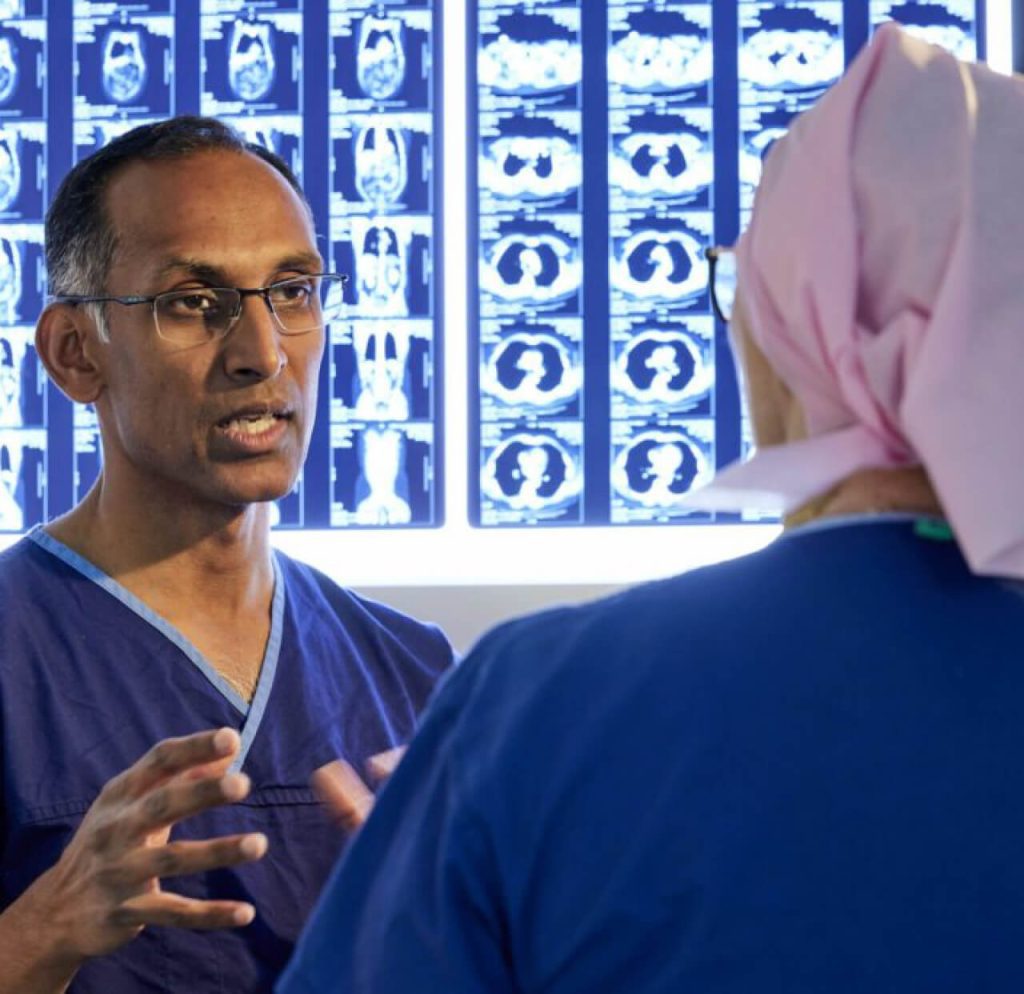
Are persistent heartburn, a nagging cough, or that uncomfortable feeling of acid reflux constantly interfering with your life? You’re not alone, and you don’t have to keep suffering.
At Precision Upper GI Surgery, I specialise in diagnosing and treating Gastro-oesophageal Reflux Disease (GORD), offering personalised solutions to help you manage symptoms, regain digestive comfort, and improve your overall quality of life. While commonly known as GERD in some regions, in Australia, the condition is often referred to as GORD. I understand the nuances of this condition and provide expert care tailored to you.
What Exactly is GORD (Gastro-oesophageal Reflux Disease)? Gastro-oesophageal Reflux Disease (GORD) is more than just occasional indigestion. It’s a chronic condition where stomach acid frequently flows back up into the oesophagus – the tube connecting your mouth and stomach. This “acid reflux” irritates the sensitive oesophageal lining. While experiencing reflux now and then is normal, if it happens more than twice a week or significantly impacts your daily life, it’s likely GORD (or GERD).
GORD symptoms can vary, but watch out for these common signs occurring regularly:

A burning feeling rising in your chest, often worse after eating or when lying down.

A sour or bitter taste from acid backing up into your throat or mouth.

A sensation of food getting stuck.

A feeling of a lump or fullness in your throat.

A persistent cough, particularly noticeable at night, without other cold symptoms.

Acid reflux can sometimes trigger or aggravate asthma symptoms.

Voice changes caused by acid irritation.

Nighttime symptoms disrupting your sleep.

Non-cardiac chest pain. (Important: Always seek immediate medical evaluation for unexplained chest pain to rule out heart conditions.)
If you consistently experience two or more of these, scheduling a consultation at Precision Upper GI Surgery is a crucial next step towards effective management.
The most common culprit is a problem with the lower oesophageal sphincter (LES), the muscle valve that should keep acid in the stomach.
Factors contributing to GORD (or GERD) include:
The primary issue, where the valve weakens or relaxes improperly.
A portion of the stomach pushes up through the diaphragm.
Increases pressure on the stomach.
Hormonal changes and physical pressure.
Trigger foods (fatty/fried items, chocolate, caffeine, alcohol, acidic foods) can worsen symptoms.
Nicotine relaxes the LES.
Including some blood pressure, asthma, pain, and antidepressant medications. (Discuss with your doctor).
Food stays in the stomach longer, increasing reflux risk.

Getting the right diagnosis is key to finding lasting relief from GORD. My experienced approach includes:
1
I listen carefully to understand your specific symptoms, patterns, and health background.
2
Assessing your overall health.
3
Assessing your overall health.

A thin scope with a camera allows me to directly view your oesophagus and stomach for signs of irritation or damage.

Precisely measures how often and how long acid refluxes into your oesophagus over 24-48 hours.

Tests the muscle function and coordination of your oesophagus and LES.

Helps visualise the structure and function of your upper digestive tract.
There’s good news: GORD is highly manageable. At Precision Upper GI Surgery, I partner with you to create a tailored treatment plan based on your specific needs and the severity of your condition.
My approach covers a spectrum of evidence-based strategies:
Often the first step, focusing on:

Identifying and avoiding your personal trigger foods/drinks, eating smaller meals.

Using gravity to help keep acid down.

Achieving a healthy weight significantly reduces pressure.

Quitting improves LES function.

Finishing meals 2-3 hours before lying down.

Reducing pressure on the abdomen.
Often the first step, focusing on:

Antacids (quick relief), H2 blockers (longer relief), PPIs (stronger acid suppression).

Stronger H2 blockers or PPIs when OTC isn't enough or if oesophageal damage exists. I'll discuss appropriate use and potential long-term effects.
For severe, persistent GORD unresponsive to other treatments, or for patients seeking a more permanent solution, I offer minimally invasive procedures and surgical options. This may include procedures like Laparoscopic fundoplication designed to physically prevent reflux. Precision Upper GI Surgery specialises in these advanced techniques. I’ll thoroughly discuss if these are the right option for your specific case.
Living comfortably without the constant disruption of GORD is possible. At Precision Upper GI Surgery, I offer:

I am a board-certified surgeon with extensive experience in diagnosing and treating GORD, including advanced surgical interventions.

I utilise the latest diagnostic tools and minimally invasive surgical techniques for accurate assessments and effective treatment.

I believe in creating treatment plans tailored specifically to you, your lifestyle, and your individual GORD presentation.

I understand the impact of GORD on your daily life and am committed to helping you find lasting relief with supportive, empathetic care.

From lifestyle coaching and medication management to advanced surgical procedures, I provide a full spectrum of evidence-based treatments.

I am a board-certified surgeon with extensive experience in diagnosing and treating GORD, including advanced surgical interventions.

I utilise the latest diagnostic tools and minimally invasive surgical techniques for accurate assessments and effective treatment.

I believe in creating treatment plans tailored specifically to you, your lifestyle, and your individual GORD presentation.

I understand the impact of GORD on your daily life and am committed to helping you find lasting relief with supportive, empathetic care.

From lifestyle coaching and medication management to advanced surgical procedures, I provide a full spectrum of evidence-based treatments.
Here are some common questions I hear about Gastro-oesophageal Reflux Disease (GORD), also known as GERD:
Heartburn is a symptom of acid reflux, which is the backward flow of stomach acid into the oesophagus. GORD is a chronic condition where acid reflux occurs frequently (more than twice a week) and causes bothersome symptoms or complications. Occasional heartburn is common, but frequent heartburn could indicate GORD.
You should see a doctor if you experience heartburn more than twice a week, if your symptoms are severe or persistent despite using over-the-counter medications, or if you have warning signs like difficulty swallowing, weight loss, chest pain, or choking. These could indicate complications or other underlying conditions.
Yes, if left untreated or poorly managed, chronic GORD can lead to complications such as oesophagitis (inflammation of the oesophagus), strictures (narrowing of the oesophagus), and Barrett’s oesophagus, which is a precancerous condition. Effective management is key to reducing these risks.
Diagnosis often starts with a review of your symptoms and medical history. If needed, I may recommend tests like an upper endoscopy (to view the oesophagus and stomach), ambulatory pH monitoring (to measure acid reflux), or oesophageal manometry (to assess muscle function).
Treatment for GORD is personalised and may include lifestyle and dietary changes, medications (like antacids, H2 blockers, or PPIs), and in some cases, advanced procedures or surgery for long-lasting relief.
Surgical options, such as Laparoscopic fundoplication, are designed to provide long-term, and often permanent, relief by reinforcing the lower oesophageal sphincter. However, the success can vary depending on individual factors. As your specialist at Precision Upper GI Surgery, I can discuss if surgery is an appropriate option for you and what results you might expect.
Don’t let GORD symptoms dictate your life. I at Precision Upper GI Surgery am here to provide the expert diagnosis and personalised treatment you need to find lasting relief.
Precision Upper GI Surgery, your trusted provider for Upper GI procedures in Sydney, NSW. Led by Dr Manju, our team is dedicated to offering a range of services to support patients’ journey towards excellent health.
© 2025 Precision Upper GI Surgery. All rights reserved. | Privacy Policy